Parents play a vital role in hazing prevention because they are often the first and most trusted line of communication for their student. When parents talk openly about hazing before and during their child’s involvement in campus life—whether it’s athletics, student organizations, or fraternities and sororities—they help set clear expectations about respect, safety, and accountability. These conversations empower students to recognize unhealthy or dangerous behaviors and to make informed choices if they ever find themselves in a situation that feels wrong. Parents who stay engaged and check in regularly can reinforce the message that belonging should never come at the cost of someone’s dignity or safety.
It’s also important for parents to take action if they see or hear signs of potential hazing—such as unusual exhaustion, secrecy, fear of participation, unexplained injuries, or changes in attitude or performance. Reporting concerns early to campus officials or law enforcement can prevent harm and may even save a life. Too often, hazing continues because people are unsure whether what they’re seeing “counts” or they don’t want to overreact. But when parents speak up, they model courage and care, helping to build a culture where no student is put at risk for the sake of “tradition.” Hazing prevention is most effective when families, schools, and organizations work together to ensure every student is valued, respected, and safe.
The video above is a conversation with Dr. Lori Hart and Dr. Byron Hughes, Assistant Vice Chancellor and Dean of Students at the University of Tennessee, Knoxville hosted by Hazing Prevention Network during the 2025 National Hazing Prevention Week.
This session explored the powerful and often underutilized role that parent, friends and partners play in hazing prevention. Through a conversation with Dr. Lori Hart, a national expert on prevention and fraternity/sorority life, we examined how parents, friends and partners can serve as key protective factors for students—especially during vulnerable transition periods like joining a team, organization or fraternity/sorority. Dr. Hart shared insights on how open communication, setting expectations, and staying engaged can help interrupt the normalization of hazing behaviors. Participants walked away with concrete strategies for empowering parents to recognize red flags, have impactful conversations with their students, and partner in creating a culture of safety, respect and accountability. This dialogue is part of the Hazing Prevention Network’s commitment to empowering all stakeholders—especially families—to stop hazing before it starts.
Resources shared during the conversation:
- Gallup Global Study on Flourishing
- The Dangers of Hazing and Bullying | Kathleen Wiant | TEDxDayton (Video)
- National Hazing Prevention Hotline 1-888-NOT-HAZE (1-888-668-4293)
- Prevention Plan Basic
- Sample Campus Reporting Site (University of Tennessee – Knoxville)
- Gallup Newsletters


